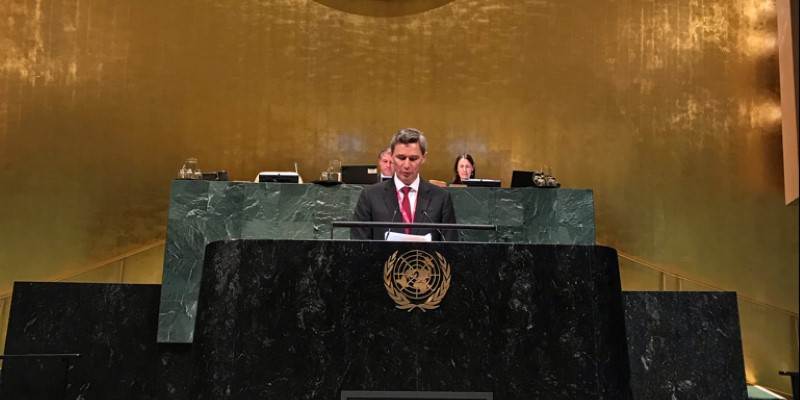Madame President, Honorable Ministers of Foreign Affairs of Estonia and of Mexico
Excellencies, Dear colleagues,
First, let me express my gratitude to Mexico for bringing this important topic to the forefront both through a highly topical resolution on the subject – and for giving us the opportunity to share our reflections on the matter here today.
Digital technology has an enormous potential to advance sustainable development. New technologies can increase the welfare of people throughout the world – but the rapid shifts also give rise to new challenges. It is therefore important that we examine closely the role digital technology can play in sustainable development, while increasing our awareness of the new set of challenges it creates.
To illustrate with an example, we need to continue to make steps to bridge the digital divide – including the gender digital divide that might arise. If not, we risk contributing to uneven growth and rising inequality.
Madame President / Chair,
Today’s mechanisms for international development cooperation have not been set up in a way that allows us to adequately deal with the rapid shift of technology. Just recently, the World Bank announced that we will not reach our sustainable development goals if we do not use digitalisation and new technology effectively.
We therefore need to close the knowledge gaps and promote interdisciplinary and system -wide collaboration in this field so that our development system not only keeps up with and responds to the challenges that accompany new technologies but that harnesses and unveils the significant opportunities that arise.
The Secretary General’s establishment of the High-Level Panel on Digital Cooperation and the Strategy on New Technologies shows that the UN is putting this topic at the top of its agenda. We welcome these important initiatives and look forward to following the progress along the way and the panel’s recommendations in nine months time.
We are pleased that our Minister of International Development, HE Nikolai Astrup, is among the members of the Secretary General’s panel, whose recommendations will draw from the wide experience and expertise from the public and private sectors, civil society, academia and the technical community and represent different parts of the world.
The Minister’s panel membership comes at the back of the recent launch of a Norwegian strategy of digitalization and technology in Norway’s international development cooperation. Our national experience has taught us that many companies and organizations with rich technological competence stand ready to contribute, but that our efforts and development strategies would stand to gain from a more systematic and goal-oriented approach.
I would argue the same is valid here at the UN. For example, at the Technology Facilitation Mechanism and the Science and Technology and Innovation Forum where we have been presented with a steadily increasing number of exciting examples of new technologies, and how these can be constructive towards our attainment of individual SDGs, and sometime several goals at the same time.
The goal today and for our future is to create better lives and opportunities for more people on this planet, and to leave no one behind. In order to reach this goal, we need to tap into the immense bank of knowledge that exists and convert challenges into opportunities.
Let me conclude by saying that you can count on Norway’s support and commitment on this important subject and we look forward to hearing from other speakers today.
I thank you.
